Dashboard and Menu Overview
PUQcloud Panel
Order Now | Download | FAQ
Dashboard Overview
The Dashboard is the main interface of the PUQcloud admin area, providing a quick overview of essential system information. It displays task queues, staff online status, automation status, and general PUQcloud information. The dashboard is designed to give administrators real-time insights into the system's performance and operational status.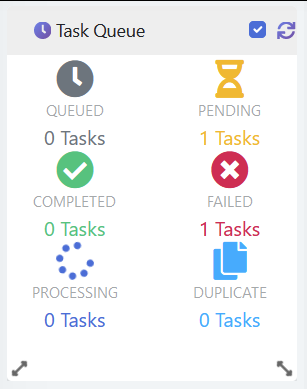
- Task Queue: Shows the number of queued, pending, completed, failed, processing, and duplicate tasks.
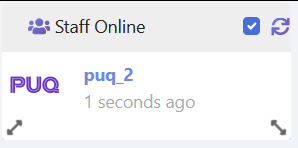
- Staff Online: Displays a list of currently logged-in administrators.
- Automation Status: Indicates the status of automated tasks such as CRON jobs and queue processing through Horizon.
- PUQcloud Info: Displays system information including the current version, uptime, PHP version, server software, and time zone settings.
Dashboard Widgets Overview
The PUQcloud dashboard offers a flexible interface for administrators, allowing them to customize the layout by rearranging widgets. Widgets can be resized and repositioned according to user preferences, ensuring an optimal viewing experience for key system metrics and statuses.
Widget Settings Menu
Administrators can manage the visibility of dashboard widgets through the Widget Settings menu. The settings icon, represented by a gear symbol, is located at the bottom right corner of the dashboard. Clicking on this icon opens the Widget Settings menu, where administrators can enable or disable specific widgets.
Available Widgets:
- PUQCloud Info: Displays general information about the system, including version, uptime, PHP version, and server details.
- Automation Status: Shows the current status of CRON jobs and queue processes managed by Horizon.
- Task Queue: Provides an overview of queued, pending, completed, failed, and processing tasks.
- Staff Online: Displays the list of currently active admin users.
Managing Widgets
In the Widget Settings menu, each widget has a toggle switch to enable or disable its display on the dashboard. When a widget is disabled, it will no longer appear on the dashboard, providing a cleaner interface. The settings are saved automatically, ensuring the chosen configuration is retained for future sessions.
Widget Layout Customization
To customize the layout of widgets:
- Click and hold a widget to move it to a different position on the dashboard.
- Drag the widget to the desired location and release it to set its position.
- Resize widgets by dragging their corners to adjust their dimensions.
The flexibility of the dashboard layout ensures that administrators can prioritize the information most relevant to their operations, enhancing productivity and system monitoring efficiency.
Menu Overview
Dashboard
The Dashboard link takes administrators to the main dashboard page, where they can see an overview of system performance and important metrics.
Clients
The Clients section allows administrators to manage client accounts and users.
- Manage Clients: Provides tools to add, edit, and manage client profiles.
- Manage Users: Allows administrators to manage user accounts associated with clients.
Products
The Products section is used to manage the services and products offered to clients. It includes the following submenus:
- Manage Products: Add, edit, and configure products and services.
- Product Groups: Organize products into groups for better management.
- Product Attributes: Define custom attributes for products.
Monitoring
The Monitoring section provides tools for tracking system activities and logs.
- Task Queue: View and manage queued tasks.
- Admin Sessions: Track active and past admin sessions.
- Activity Log: View a log of all system activities.
- Module Log: Track logs specific to system modules.
- Notification History: View the history of notifications sent through the system.
Staff
The Staff section is used to manage admin users and groups.
- Admins: Manage administrator accounts.
- Groups: Organize admins into groups with specific permissions.
Automation
The Automation section provides access to automated task management tools.
- Scheduler: Manage scheduled tasks.
- Horizon: Monitor and manage queue workers.
Email & Notifications
The Email & Notifications section is used to configure and manage notification settings.
- Notification Senders: Set up services for sending notifications.
- Notification Layouts: Create and manage notification templates.
- Notification Templates: Define reusable templates for notifications.
General
The General section contains general settings for the system.
- General: Configure system-wide settings.
- Countries: Manage country-specific settings.
- Currencies: Manage currency settings.
Add-ons
The Add-ons section provides access to additional modules and marketplace items.
- Marketplace: Browse and install add-ons from the marketplace.
- Modules: Manage installed modules.
Customization
The Customization section allows administrators to customize the admin interface.
- Admin Template: Configure the admin template settings.
- Info: View information about the current admin template.
- Layout Options: Customize the layout of the admin area.
- PUQ Sample Plugin: Access sample plugins for development purposes.
- Info: View information about the sample plugin.
- Simple Model Example: Access example code for creating models.
- Simple API Requests: View sample API requests.

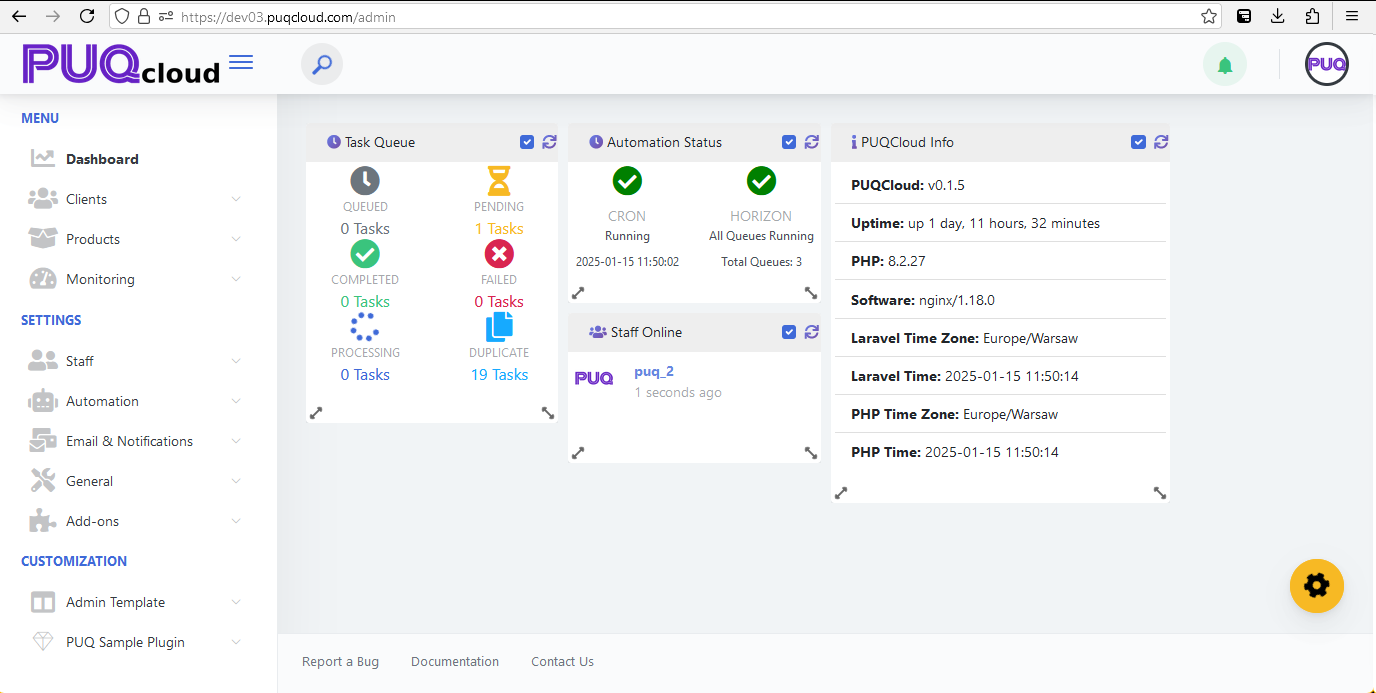
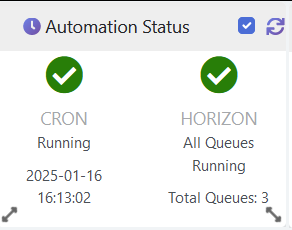
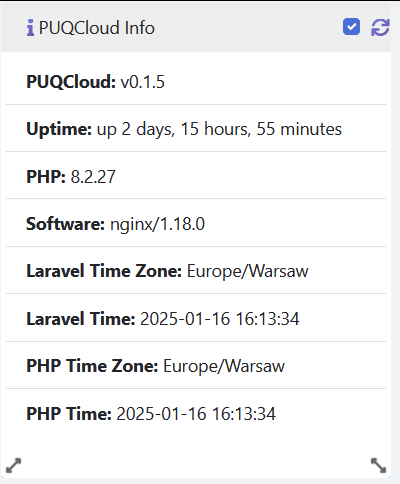
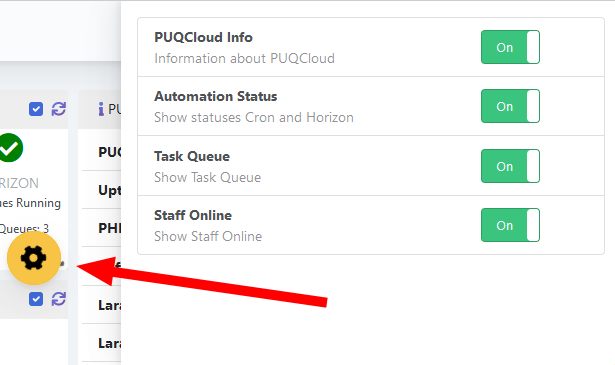
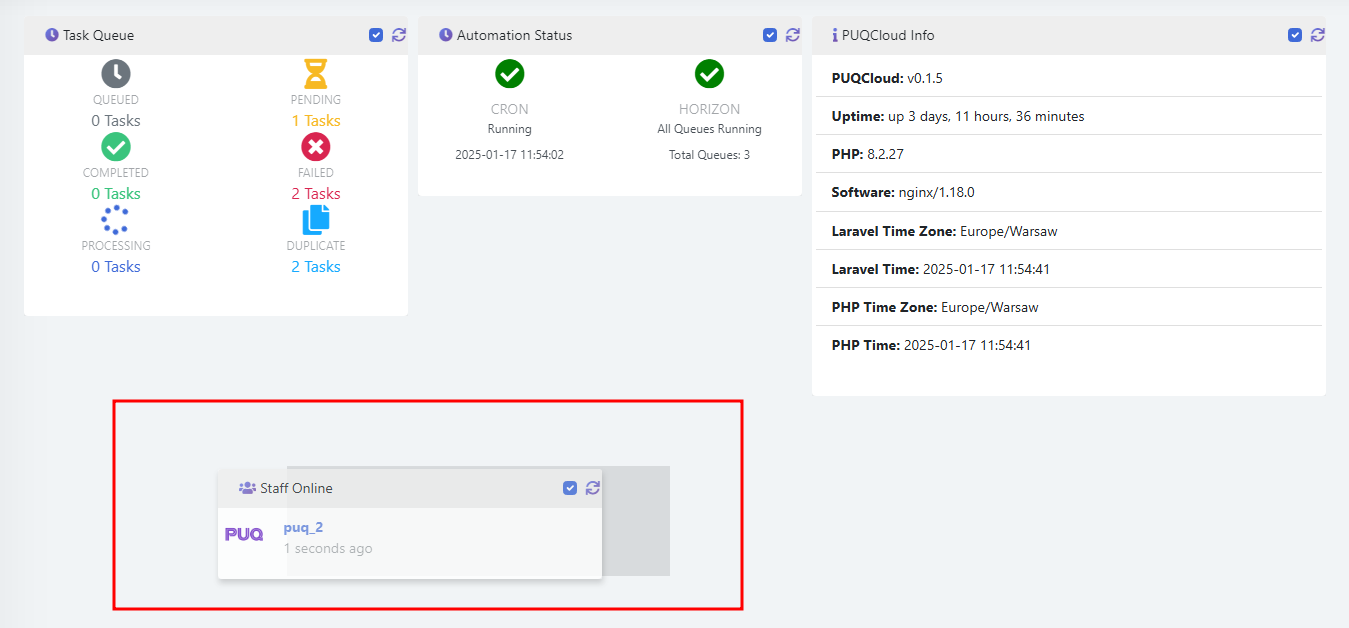
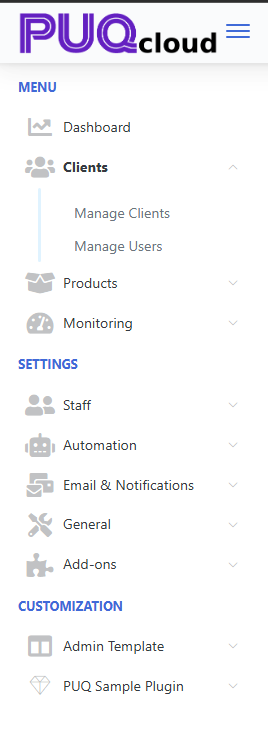
No Comments